Associate
- Joined
- 22 Jun 2018
- Posts
- 1,761
- Location
- Doon the watah ... Scotland
I’ve always wondered my they’ve not stood m.2 on its end like ram. It’d save so much space on the board in some cases.
ASUS X99 boards had a vertical M.2 bracket so it stood straight-up, the drive ran very cool as the case intake fan was right next to it.I’ve always wondered my they’ve not stood m.2 on its end like ram. It’d save so much space on the board in some cases.
I'm guessing because outside of really extreme usage cases, it makes no difference...
'heat spreaders' on ram are more for show than anything else 99.9% of the time, of course if you want RGB ram then you'll need that casing to house the LED's.
Equaly people say gen 5 drives run really hot..but what real world performance are you getting over a sata SSD??
Don't get me wrong, I'm running a mixture of SATA SSD and NVME gen 4 M.2.. I've basically retired my spin drives....
But when people say they are over-heating SSDs...what the hell are they doing with them to make them run so hot?
This ^Seems a big step backwards for very little real world gain in normal usage.
That’s Not really a massive problem for most users though?Even just downloading a game from steam can get a drive a bit toasty. Steam tries to install games while you download and does this as fast as you can send it data, so if you have a gig or multi gig connection then your ssd is gonna be running pretty hard writing files
I just transferred all my music VST instruments from SATA SSD to a Lexar nm790 nvme and the difference in load times is actually astonishing. I thought there was something wrong because I wasn't even seeing a loading screen like before. Software is all same. It's more than a 10x difference in speed on CrystalDisk.Equaly people say gen 5 drives run really hot..but what real world performance are you getting over a sata SSD??
Don't get me wrong, I'm running a mixture of SATA SSD and NVME gen 4 M.2.. I've basically retired my spin drives....

Samsung PM1743 used about 3 years old 6th generation V6 128 layer V-NAND flash memory and ELAN (S4LV006) controller. SSD used older NVMe 1.4 protocol consumed 20W max powerNot sure what the hold up is with Samsung it's not like they don't have a gen5 controller
Samsung already has an enterprise gen5 drive with a 13GB/s speed. Only thing I can think of is this controller is very inefficient and the drive would consume too much power in an m2 form factor

PM1743 | Enterprise SSD | Samsung Semiconductor Global
PM1743 is a PCIe 5.0 SSD for high-performance servers. Meet PM1743 offering the industry's fastest speed and the largest capacity of 15.36TB within the category.semiconductor.samsung.com
Edit: ok confirmed its power. To push this drive at 13GB/s the controller needs 24 watts to power it. Not only is that far too hot for a M2 Nvme drive but it's also 10 watts over the maximum power output of a m2 Nvme port. Samsung needs a gen5 controller with 50% better efficiency
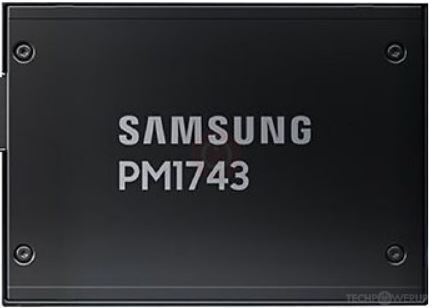

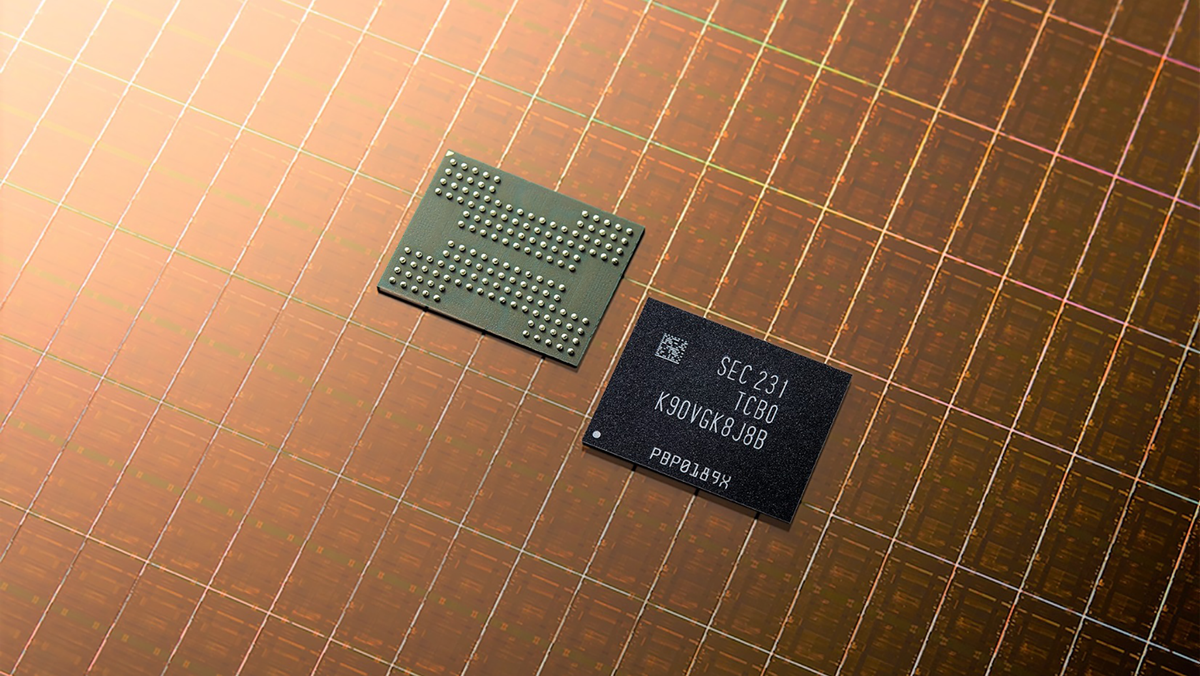
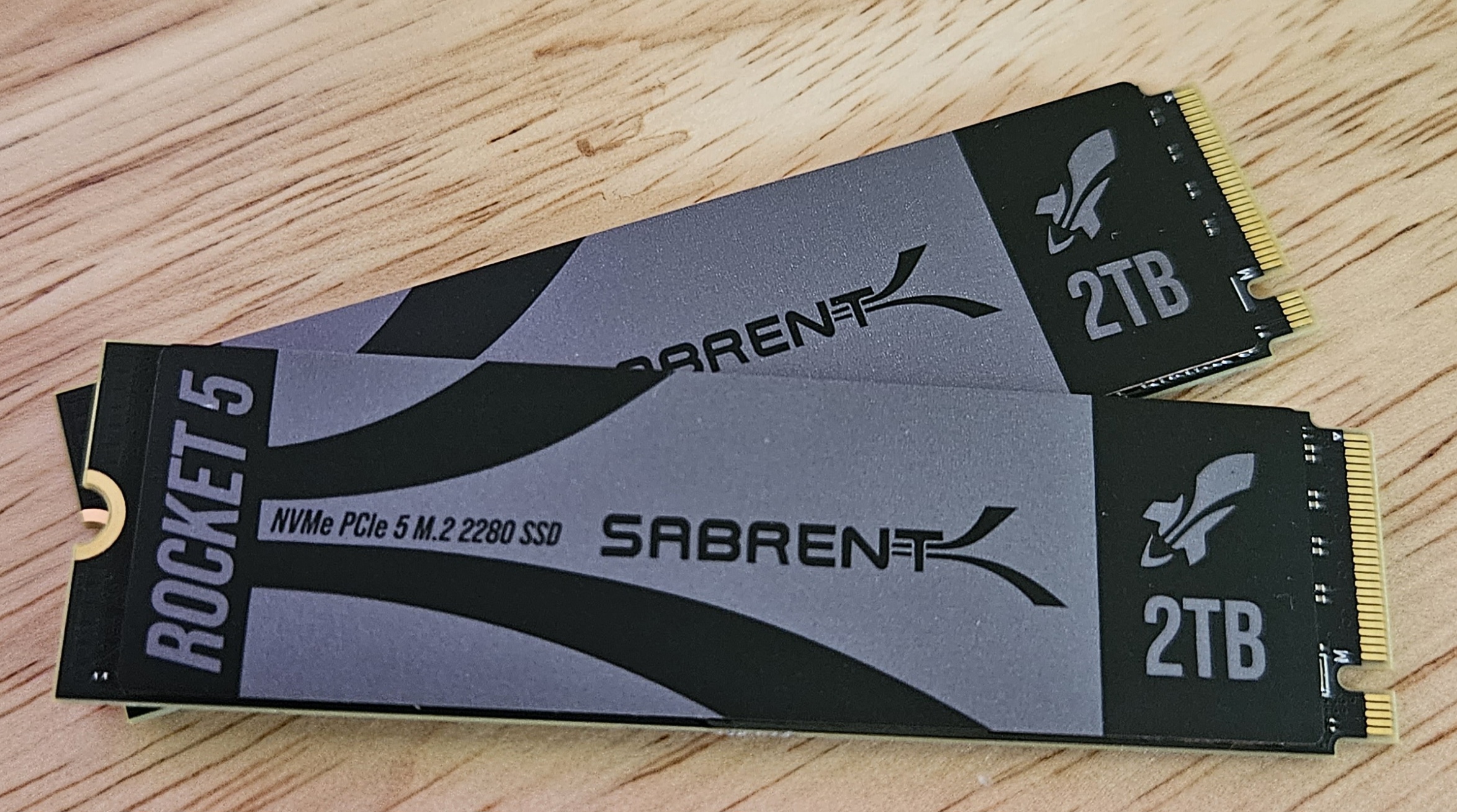
Sabrent new improved Rocket 5 Gen 5 SSD with 14GB/s read and 12GB/s write?Sabrent to release gen 5 ssd with 14GB/s read and 12GB/s write all whilst not needing active cooling..

Sabrent is about to unleash a high-speed PCIe 5.0 SSD — Rocket 5 delivers over 14 GB/s read and 12 GB/s write speeds
The era of PCIe 5.0 hitting over 14 GB/s speeds is finally here.www.tomshardware.com







Sabrent new improved Rocket 5 Gen 5 SSD with 14GB/s read and 12GB/s write?
Oh what a disappointment!

T-Force Speeds Up PCIe Gen5 SSD Portfolio With GE PRO Series: 12nm InnoGrit IG5666 Controller, Up To 14 GB/s Speeds & 2400 MT/s DRAM
T-Force has just announced its GE PRO PCIe Gen5 NVMe SSD series which features blazing fast 14 GB/s speeds achieved with faster DRAM.wccftech.com
T-Force is launch Gen 5 SSD GE PRO with 12nm Innogrit IG5666 controller offer 14GB/s read but write speed is not announced yet.
Probably 10 or 12GB/s write.
Meh!

Faster and cooler PCIe 5.0!- Meet the Silicon Motion SM2508 - OC3D
Silicon Motion plans to put other PCIe 5.0 SSD controllers to shame with their faster and cooler-running 6nm SM2508 chips.overclock3d.net
Gen 5 SSDs with Sillicon Motion 6nm SM2508 controller will offer superior 14.5GB/s read, 14GB/s write speed and lower power consumption than competitors.
Nice!
Indeed.finally SM2508 is what we need. I was shocked to find gen5 drives are all using 12nm controllers but the SM2508 will be the first to switch to 6nm and it will cut power draw in half
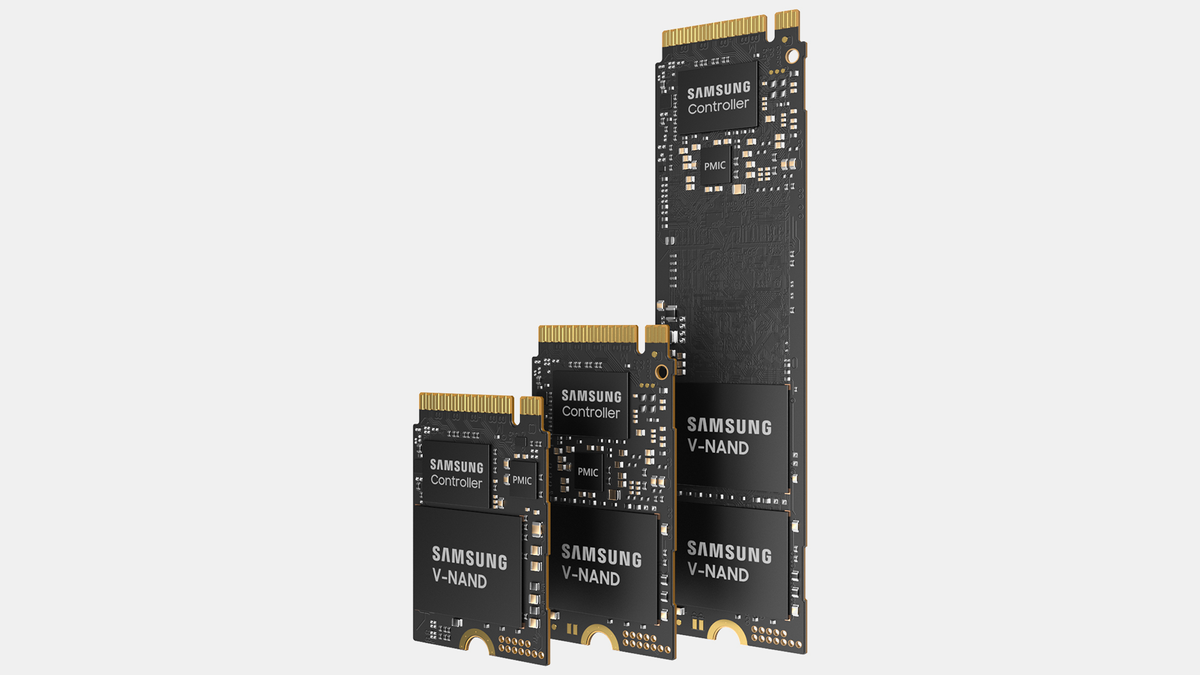
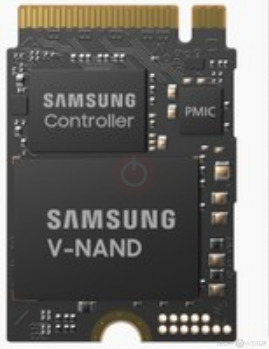
15 seconds is too long, something not right.I can't help but wonder why they're trying to blind us with big numbers. Just why does the average consumer need 14GB/s speeds?
My Samsung 990 Pro in a PCIe Gen 3 slot works fine for me, just my old motherboard loads Windows in about 15 seconds - but it's always turned on, so meh.
15 seconds is too long, something not right.
I saw all consumer PCs in Dixons, Tandy, John Menzies, Boots, Comet etc in the 70s, 80s and early 90s. Went to College in 1992, I never saw PCs with cassette tapes in my life!!!*remembers* the days of cassette tapes where you could leave a game 'loading', on a computer, for quite minutes on end (and even then it would fail a fair %, of the time) and thinking that the 2-3 minute load times of some consumer PC's of the late 90's early 00's was a big improvement!

 I watched shop assistant inserted Commodore 64 game 5.25 inch floppy disk into Commodore 1541 floppy drive and typed LOAD"*",8,1 and pressed RETURN then game took around 3 seconds to loaded and ready to play. I dropped my jaw hit the floor "WOW".
I watched shop assistant inserted Commodore 64 game 5.25 inch floppy disk into Commodore 1541 floppy drive and typed LOAD"*",8,1 and pressed RETURN then game took around 3 seconds to loaded and ready to play. I dropped my jaw hit the floor "WOW".
